Noticing an active check engine light is definitely frustrating, but it doesn’t always mean you need to take the car to the mechanic.
It can come out as an indicator of some minor issue, like an oil change or a loose gas cap.
In this guide, we will discuss on does the check engine light comes on for an oil change or not and other potential reasons.
Plus, we listed some effective tips to attempt if the check engine light comes on.
Does The Check Engine Light Come On For An Oil Change?
A check engine light coming on is the first indication that your car needs an oil change. The check engine light can activate if the oil is too dirty or there is insufficient oil flow throughout the car’s engine.
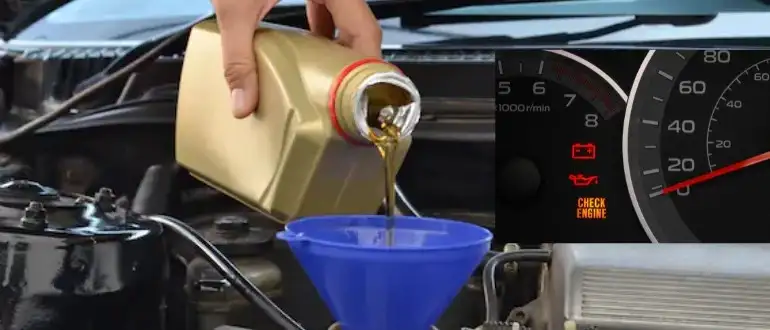
However, check engine lights can come on for plenty of different reasons. So it’s better to be sure whether or not the light indicates oil changes.
How to determine if the check light indicates oil changes?
You can check it by two simple methods.
Check the oil condition
Use your dipstick to check the condition of the oil. If it’s black, dark in color, or too low, then it’s time to change the oil.
Is it orange check light?
In most cars, an orange check light is mostly referred to as an oil change indicator. It’s considered a simple reminder to change the oil in the car.
The Potential Effect Of Running An Engine With Low Oil
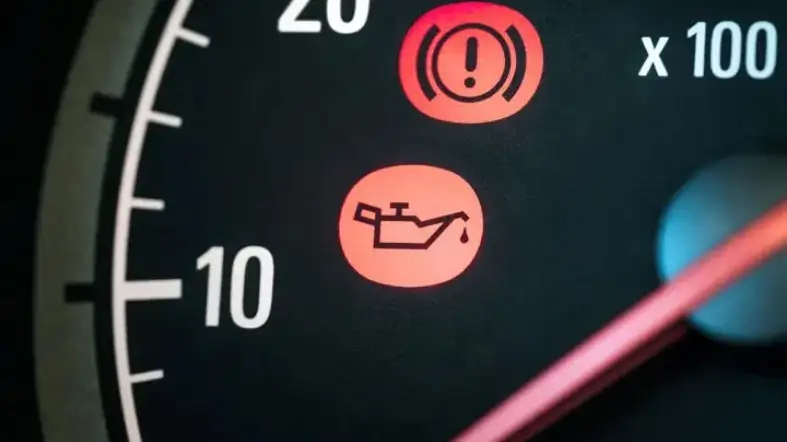
It’s the most crucial thing to learn after discovering the check engine light came on for an oil change.
If you run the engine in this crucial situation, the parts of the car may knock, clunk, and grind due to a lack of oil.
Hence, the car’s rods can break and produce a knocking noise under the vehicle. But how long can you run the engine with the oil change signal?
It suggested inspecting the vehicle by an expert mechanic immediately after indicating an oil change.
However, driving for a while won’t damage anything. You can keep driving your car for two weeks or 500 miles after getting an oil change indicator.
Some other oil change indications:
- Lower oil level
- Irregular oil texture
- Receiving too much exhaust from vehicles
- Quieter engine
- Having greater mileage than usual
The Most Potential Reasons For The Check Engine Light Coming On
Check engine coming on doesn’t only indicate an oil change. There can be some other issues, like a faulty oxygen sensor or a loose gas cap that forces the check engine light to come on.
Let’s get details about it:
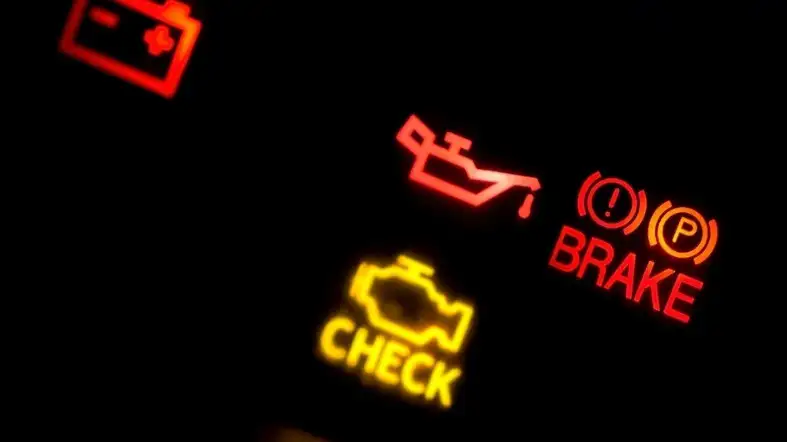
Damaged oxygen sensor
The oxygen sensor measures how much oxygen remains unburned in the exhaust system. The car’s check engine light can come on to indicate a damaged oxygen sensor that should be replaced.
To be sure about this potential reason, check the fuel economy. If you notice it decreasing noticeably, then your vehicle requires a new oxygen sensor.
Your gas cap is loose
After filling up the gas tank, you must secure it firmly before starting the engine and driving the car.
Otherwise, a loose gas cap can cause the check engine light to come on in the car’s dashboard. In this case, pulling the gas cap and retightening it will fix the issue.
If you still notice the activate check engine light, take the vehicle to the service department immediately.
A Faulty Catalytic Converter
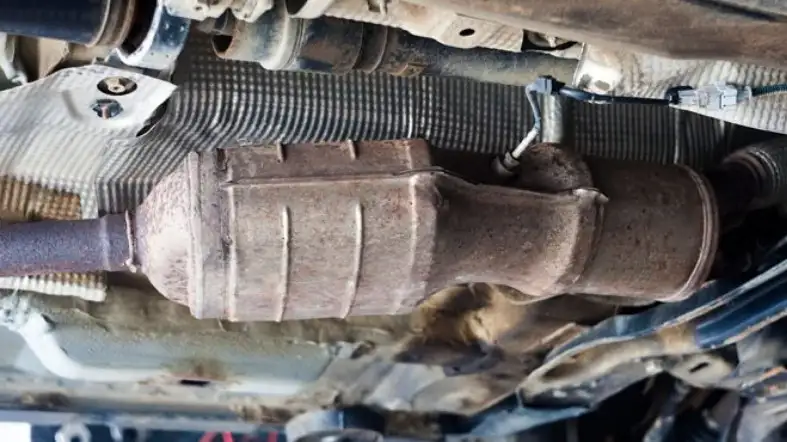
Likewise, a damaged oxygen sensor, a faulty catalytic converter also decreases the vehicle’s fuel economy harshly. Hence, the check engine light comes on and the engine becomes overheated.
It also prevents a car from performing efficiently, and a repair shop can only handle this problem.
Worn spark plugs
If the spark plugs of a car are worn out or damaged, it will activate the check engine light. It will reduce the car’s power hugely.
After confirming that the damaged spark plugs are causing the check engine light to turn on, get your car checked by a professional immediately. Delay can cause serious damage under the hood.
A problem with the emissions system
The emissions system of a car is a complex feature that processes the harmful byproducts and waste products of the car’s combustion engine.
It also either emits or converts them safely. A problematic emissions system can interfere with that car’s emission patterns, safety, and fuel efficiency.
As a result, the check engine light can come on to warn you about the problem with this emissions system.
Overheating
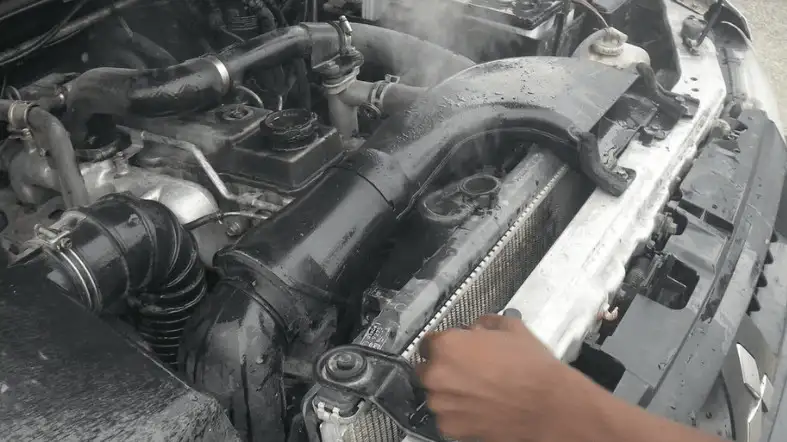
The check engine light of a car can also come on because of overheating. The other potential symptoms are smoking from under the hood or a high-temperature gauge.
Both are serious problems for a vehicle. So if your car’s check engine light turns on due to overheating, reduce the car’s speed, and try to lower the engine’s temperature by switching on the heat. Still, if you can reduce the temperature, pull it over and ask for help.
Airflow Sensors
Likewise, the oxygen sensor, based on airflow, can also know if the right amount of fuel is flowing through the engine.
If something is wrong with it, the vehicle will have poor gas mileage, produce more emissions, and activate the check engine light.
Replacing an airflow sensor is a simple task, but it’s really expensive. However, replacing the air filter once a year will keep the airflow sensors in optimum condition.
The Check Engine Light comes on. What next?
Once you notice the check engine light coming on, the very first thing you should do is schedule a service appointment at a car repair shop immediately.
At the initial stage, the damage can be minor and can be solved by simply tightening the gas cap, for example.
Despite this, the professional technicians will offer a more precise diagnosis to determine the original problem that activates the light and fix the problem properly if required.
What About a Blinking Check Engine Light?
If you notice your vehicle’s check engine light turning on and remaining steady, then check it first without being too worried.
Change is a simple step that will fix the problem. You shouldn’t let it become a more dangerous issue that may require expensive repair.
But if you notice the light is blinking, then it’s a much more serious concern. In this situation, take the car to the side of the road carefully and turn off the vehicle.
Don’t drive the car anymore unless you don’t have any other way. Call a pro mechanic immediately.
Coming out blinking light is always a serious issue, and ignoring it can cause catastrophic damage to your car and can end up hurting you.
FAQs
Can A Car’s Check Engine Light Turn On Without Any Reason?
No, there must be a reason behind turning on the check engine light. It can be a loose gas cap or failure of the engine’s internal parts.
Does The Check Engine Light Come On For Maintenance?
Yes, activating a vehicle’s check engine light can be an indication that your car requires service. For better understanding, take the car to a service point and let them run a diagnostic test to find out the source of the problem and solve it.
Final words
Activating the check engine light clearly means something is wrong with your car. So whether the check engine light comes on for an oil change or other problem, let it be determined and solved by a professional mechanic.
Though you can handle minor cases like an oil change or loose gas caps, letting the mechanic change the oxygen sensor, air filter, or spark plug is a safe decision.
More importantly, don’t avoid the active check engine light as it can cause you expensive repairs or even serious injury.
